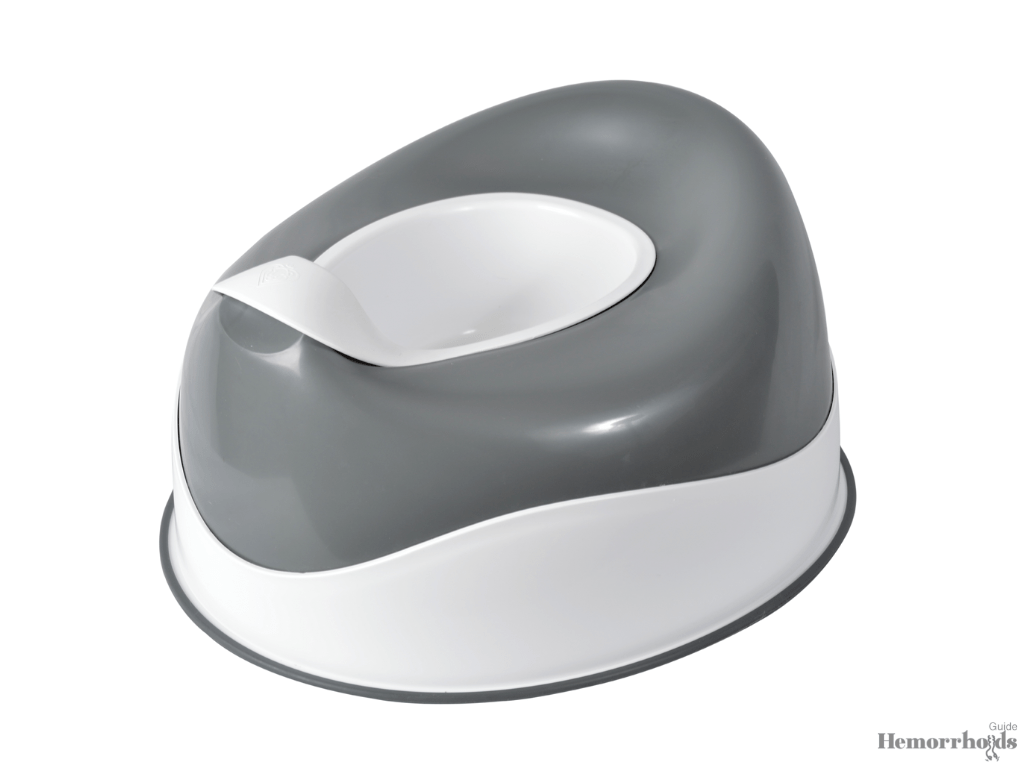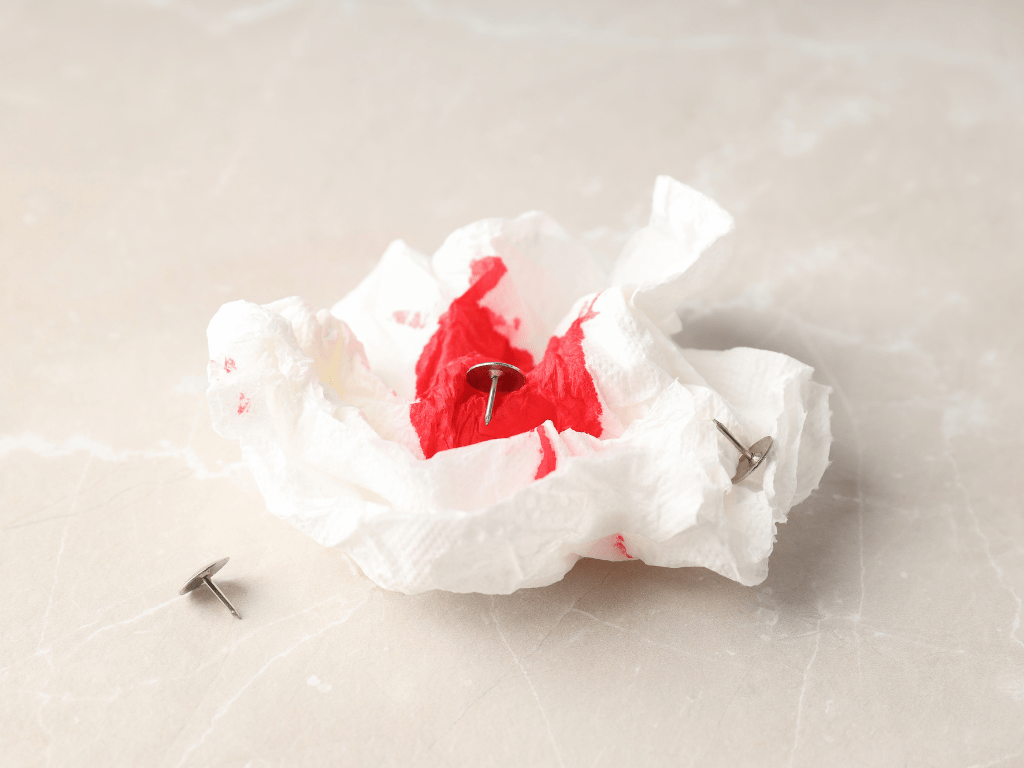Bleeding hemorrhoids is quite common in people that are ‘kind of new’ to hemorrhoids. It usually happens at the early stage of hemorrhoid development. Myself, I remember the fear I felt at the sight of blood in my stool. The following article will talk about my first-hand experience with what is “normal” hemorrhoid bleeding.
How much bleeding is ok?
First, it’s important to mention that bleeding is a sign of your hemorrhoids worsening. Hemorrhoid bleeding can occur when the blood vessel pressure gets too high. It can then cause the slightest scratch to break the skin around the affected area.
You should never let bleeding hemorrhoids be a part of your everyday life, seek help from a doctor.
I’ve had days where I could see the blood sprinkling the white toilet porcelain, and that was scary. Other times, the only sign of bleeding is the bloody stains on the toilet tissue.
How to measure how much blood is in my stool?
You can not measure the exact amount of blood in your stool at home, but you can tell roughly by using a potty, or at least that’s what I did.
Rather than doing the #2 in your toilet, take a potty ( or a large plastic bag ) and do it there. Try not to pee so you can distinguish the blood from the rest of the material.

Most days, I would have a few drops of blood (around 2-3ml) and some blood residue on the poop itself. A few times, it was quite a lot( 10ml ), but that was rare.
What to do about hemorrhoid bleeding?
When experiencing hemorrhoid bleeding, its essential to know what’s causing it and what to do about it.
During my worst months with hemorrhoid bleeding, what I found helpful was not going to the toilet unless I had to. The constant straining only worsens the hemorrhoid bleeding. That meant eating less, avoiding heavy-reach foods such as meat and dairy, and eating more vegetables and soft fruits.
I know some of you might find this unappealing, but there is nothing worse than realizing what goes in must come out.
Normal hemorrhoid vs. burst hemorrhoid bleeding.
Unlike normal hemorrhoid bleeding, burst hemorrhoids produce a large amount of blood within a short period of time. When it does, you might feel an instant relief of pressure in the area around it. I would suggest visiting a doctor so they can check the area around it for any signs of infection.
When should you be worried about hemorrhoid bleeding?
In most cases, the discomfort from hemorrhoids and hemorrhoid bleeding subsides within a week. If bleeding continues for longer than a week, you should visit a doctor.
In my experience, make your visits to the doctor more frequent until you feel you know your symptoms. Stop guessing and make sure you are safe.

